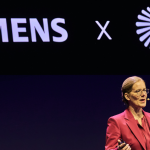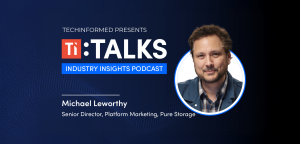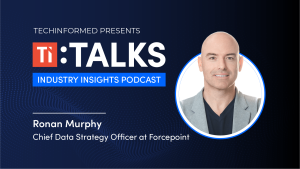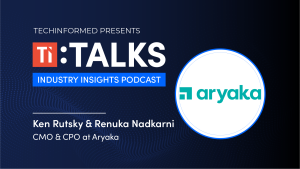
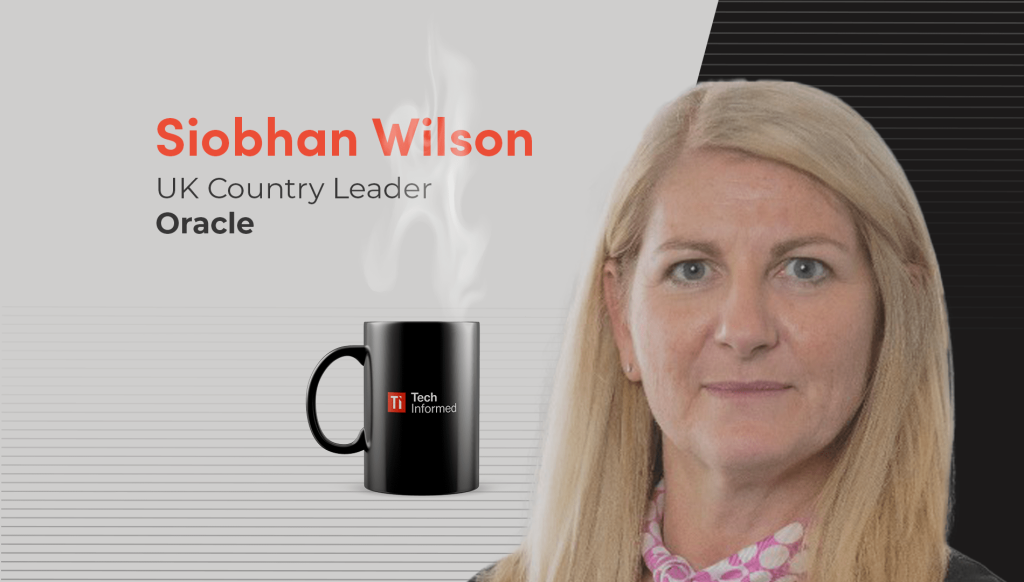
Siobhan Wilson, UK country leader, Oracle
After two decades working for IT giant Oracle, Siobhan Wilson, UK country leader, knows a thing or two about evolving technologies and customer needs. From digital transformation in healthcare to racing simulations with Red Bull,…
After two decades working for IT giant Oracle, Siobhan Wilson, UK country leader, knows a thing or two about evolving technologies and customer needs.
From digital transformation in healthcare to racing simulations with Red Bull, Wilson shares how Oracle is making technologies tangible and valuable for UK businesses, particularly after its recent $5 billion investment into cloud infrastructure within the nation over the next five years.
We also learn how she stays grounded and the importance of keeping weekends strictly off-limits so she can reenergise.
You’ve been with Oracle for over two decades. What’s kept you inspired to stay all these years?
The main reasons I’ve stayed are, firstly, the opportunities Oracle provides, and secondly, the constant innovation.
Just when you think things might slow down, something new comes along. A new technology, a new challenge. It keeps things fresh.
It’s also the customers. Most of my career has been post-sale, working with customers to make sure they’re getting value from our products and services. Understanding what they’re doing with our technology keeps it really interesting. It becomes a “what’s next?” mindset – what can we innovate? What else can we help our customers with?
From the outside, tech can seem like just data centres and computers. But in reality, it touches so many industries. Is there an area that excites you the most?
I think healthcare is really exciting. We acquired Cerner a few years ago, and that really brought it to life. Another example is our partnership with Red Bull Racing. That one resonated personally, especially for my teenage son. Before that, he didn’t really understand what I did. But once he saw we were working with Red Bull Racing, it all clicked for him.
It’s more than a sponsorship – they use our technology to gain real advantages. That kind of real-world impact makes it exciting.
Red Bull use our OCI (Oracle Cloud Infrastructure) to run billions of simulations before and during each race. This gives them an AI-driven strategy.
One use case is using GenAI to protest penalties; it will soon enable ORBR to detect issues in real-time and take immediate action.
Can you share a use case from the health sector?
One example is our digital assistant in the health application. It allows clinicians to record conversations with patients. The AI then processes that and automatically books follow-up appointments right there in real time.
So instead of waiting for a letter in the post, the patient sees their next appointment immediately. That’s a big change. It saves clinicians time too – they can focus on patients rather than admin.
Speaking of AI, what are you seeing in terms of customer trust and adoption? What have been the major challenges?
Initially, customers were curious – how do we use AI? What does it mean for us? But now we’re seeing adoption really ramp up. A good example is in our Fusion Applications, particularly ERP, where AI is used for financial forecasting.
Instead of manually entering data, an AI agent analyses historical data to help CFOs with forecasts. That’s just one small area. What’s really exciting is that AI is embedded across our stack, from OCI to industry applications, and in just the last six months we’ve seen massive adoption.
You also went to Downing Street recently to talk about Oracle’s $5 billion UK investment. How do you see that shaping Oracle’s role in AI here?
The UK Government has made it clear they want to invest in AI, but we were also responding to demand from our customers. We’ve got a strong partnership with NVIDIA, and we’ve seen huge demand for OCI capacity.
The investment was driven by that customer need: to support their growth and capacity needs right here in the UK.
What kind of opportunities do you think this opens up for UK businesses?
It’s about helping customers get more value, be more competitive, and grow. The more they can use our technology, the more efficient they can become, and that gives them a competitive edge in their own markets.
With technology moving so fast, what kind of mindset do business leaders need?
I think most leaders now understand they need to invest in AI. The key thing is having a solid data strategy. AI is only as effective as the data behind it. If your data isn’t clean or well-structured, the AI can’t deliver the right results.
The fear factor has definitely gone down. Now it’s about value and ROI. I recently spoke with a customer who’s tracking AI usage in each department. What’s being used, how, and what outcomes it’s driving. That’s the mindset now.
Customers can build their own AI agents with you, too?
Yes. We’ve launched the AI Agent Studio within our Fusion Applications. It allows customers to build their own AI agents based on their business needs.
I was playing around with it recently and it’s very user-friendly. You just select what you need from the dropdowns. You can even humanise it, so a human still reviews the data. I’m not from a tech background, and even I could use it.
What’s the best use of AI in your daily work right now?
Right now, it’s in HCM – our HR applications. For example, it helps generate job descriptions and performance appraisals. What used to take an hour, I can now do in real-time with the employee. It’s all generated based on existing data, and I can just add a human touch. It’s saving me a huge amount of time.
How do you wind down and switch off from work?
I’m really disciplined about weekends. Unless something urgent comes up, I don’t work at weekends. That’s my time to shut down and be with my family. I do a lot of walking, and there’s always something going on – we’re a big family, so there’s usually an event or gathering happening.
How do you take your coffee?
I don’t tend to drink a lot of coffee, but I’ll normally have one in the morning, as a cappuccino.
And then I don’t really drink it for the rest of the day. I usually drink tea.




